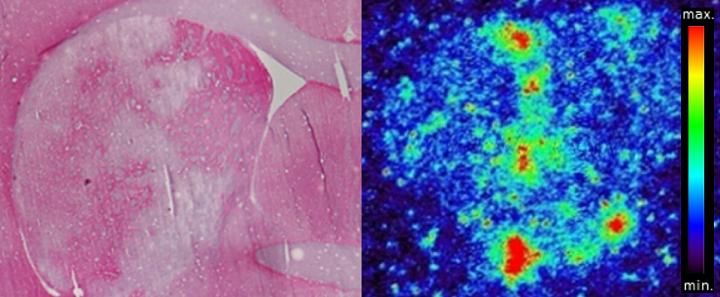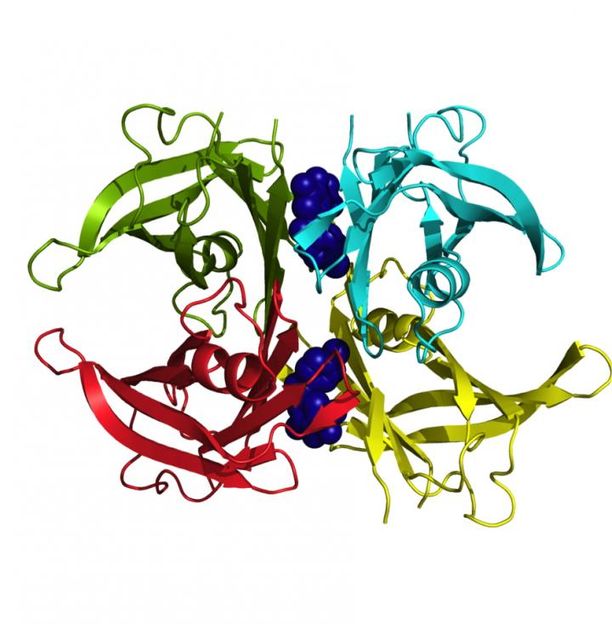How a protein in your brain could protect against Alzheimer's disease
New research sets the stage for new therapeutic strategies for Alzheimer's disease
Research shows that white blood cells in the human brain are regulated by a protein called CD33--a finding with important implications in the fight against Alzheimer's disease, according to a new study by University of Alberta chemists.
"Immune cells in the brain, called microglia, play a critical role in Alzheimer's disease," explained Matthew Macauley, assistant professor in theDepartment of Chemistry and co-author on the paper. "They can be harmful or protective. Swaying microglia from a harmful to protective state could be the key to treating the disease."
Scientists have identified the CD33 protein as a factor that may decrease a person's likelihood of Alzheimer's disease. Less than 10 percent of the population have a version of CD33 that makes them less likely to get Alzheimer's disease. "The fact that CD33 is found on microglia suggests that immune cells can protect the brain from Alzheimer's disease under the right circumstances," said Abhishek Bhattacherjee, first author and postdoctoral fellow in the Macauley lab.
Now, Macauley's research shows that the most common type of CD33 protein plays a crucial role in modulating the function of microglia.
"These findings set the stage for future testing of a causal relationship between CD33 and Alzheimer's Disease, as well as testing therapeutic strategies to sway microglia from harmful to protecting against the disease--by targeting CD33," said Macauley. "Microglia have the potential to 'clean up' the neurodegenerative plaques, through a process called phagocytosis--so a therapy to harness this ability to slow down or reverse Alzheimer's disease can be envisioned."
Macauley is an investigator with GlycoNet, a Canada-wide network of researchers based at the University of Alberta that is working to further our understanding of biological roles for sugars. GlycoNet provided key funding to get this project off the ground in the Macauley lab and continues to support the ongoing applications of the project.
According to the Alzheimer's Association, 747,000 Canadians are currently living with Alzheimer's or another form of dementia. The disease affects more than 44 million people around the world.
Original publication
Other news from the department science

Get the life science industry in your inbox
By submitting this form you agree that LUMITOS AG will send you the newsletter(s) selected above by email. Your data will not be passed on to third parties. Your data will be stored and processed in accordance with our data protection regulations. LUMITOS may contact you by email for the purpose of advertising or market and opinion surveys. You can revoke your consent at any time without giving reasons to LUMITOS AG, Ernst-Augustin-Str. 2, 12489 Berlin, Germany or by e-mail at revoke@lumitos.com with effect for the future. In addition, each email contains a link to unsubscribe from the corresponding newsletter.
Most read news
More news from our other portals
Last viewed contents
Antibiotics might team up to fight deadly staph infections
New model for studying Alzheimer’s disease - A novel model that may prove useful to the study of Alzheimer’s at its earliest stages developed

Holmarc Opto-Mechatronics P Ltd - Kerala, India

Sweet nanoparticles target stroke
VaxGen Raises USD 79M Through Sale of Interest in Overseas Biopharmaceutical Manufacturing Facility
How to rescue the immune system - Study in Nature Medicine could lead to novel therapy for cancer
Orchid Bioscience reports full year 2004 financial results



















































